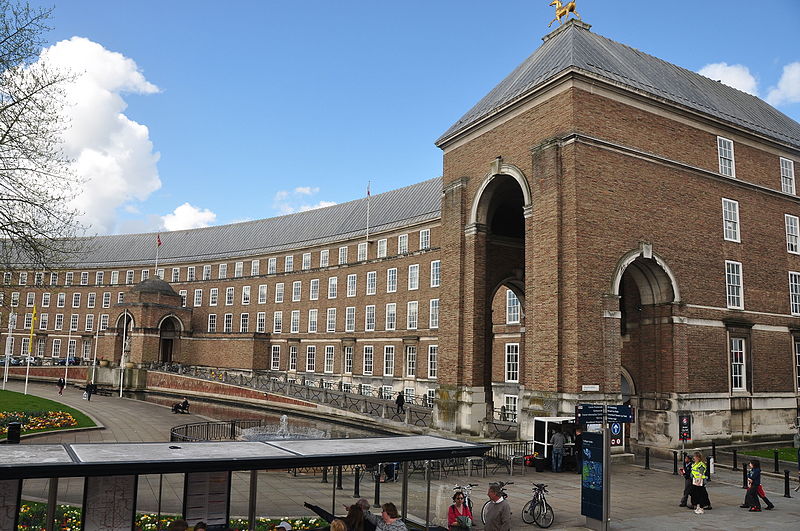
Culture
-
 Karen Newman appointed to sculpt Queen Elizabeth II for National Memorial in St James’s Park
Renowned British sculptor Karen Newman MRSS has been appointed to create a new sculpture of Queen Elizabeth II as part of the UK’s national memorial to the late Monarch, the QueenRead More...
Karen Newman appointed to sculpt Queen Elizabeth II for National Memorial in St James’s Park
Renowned British sculptor Karen Newman MRSS has been appointed to create a new sculpture of Queen Elizabeth II as part of the UK’s national memorial to the late Monarch, the QueenRead More... -
 UK government unveils £1.5bn culture investment to save 1,000 local venues and restore national pride
The government has announced a landmark £1.5 billion investment in arts, culture and heritage, pledging to safeguard more than 1,000 local venues across England and reverse years ofRead More...
UK government unveils £1.5bn culture investment to save 1,000 local venues and restore national pride
The government has announced a landmark £1.5 billion investment in arts, culture and heritage, pledging to safeguard more than 1,000 local venues across England and reverse years ofRead More... -
 Museum of Oxford reveals 2026 programme focused on community stories, talks and events
The Museum of Oxford has unveiled its 2026 programme, setting out a year of talks, tours and hands-on events that place local people and shared histories firmly centre stage. The newRead More...
Museum of Oxford reveals 2026 programme focused on community stories, talks and events
The Museum of Oxford has unveiled its 2026 programme, setting out a year of talks, tours and hands-on events that place local people and shared histories firmly centre stage. The newRead More... -
 £9m Claude Lorrain masterpiece faces possible export as UK scrambles to keep Baroque treasure
A Baroque landscape masterpiece valued at £9 million has been placed under a temporary export ban, giving UK institutions a final opportunity to keep the work in the country.Read More...
£9m Claude Lorrain masterpiece faces possible export as UK scrambles to keep Baroque treasure
A Baroque landscape masterpiece valued at £9 million has been placed under a temporary export ban, giving UK institutions a final opportunity to keep the work in the country.Read More... -
 Welsh towns invited to compete for first-ever UK Town of Culture title
Could a Welsh town become the very first UK Town of Culture? Communities across Wales are being invited to step into the national spotlight as the UK launches its inaugural Town of CultureRead More...
Welsh towns invited to compete for first-ever UK Town of Culture title
Could a Welsh town become the very first UK Town of Culture? Communities across Wales are being invited to step into the national spotlight as the UK launches its inaugural Town of CultureRead More... -
 In Bloom: How plants shaped Britain and the modern world
Plants surround us every day – in our gardens, our homes and even in our cups of tea – yet few of us stop to consider the extraordinary journeys they have taken to get here.Read More...
In Bloom: How plants shaped Britain and the modern world
Plants surround us every day – in our gardens, our homes and even in our cups of tea – yet few of us stop to consider the extraordinary journeys they have taken to get here.Read More... -
 UK launches first town of culture competition to revive local pride and boost economic growth
The government has officially launched the UK’s first-ever Town of Culture competition, marking a major new push to restore pride in communities and drive cultural-led economic growthRead More...
UK launches first town of culture competition to revive local pride and boost economic growth
The government has officially launched the UK’s first-ever Town of Culture competition, marking a major new push to restore pride in communities and drive cultural-led economic growthRead More... -
 Government announces academy trust inspections to strengthen school accountability
New academy trust inspections to boost transparency for parents and strengthen outcomes for childrenRead More...
Government announces academy trust inspections to strengthen school accountability
New academy trust inspections to boost transparency for parents and strengthen outcomes for childrenRead More... -
 Cumbrian animated flood film scoops international science award
A short animated film featuring a red squirrel from Cumbria has won an international education award, shining a global spotlight on how trees can help tackle floodingRead More...
Cumbrian animated flood film scoops international science award
A short animated film featuring a red squirrel from Cumbria has won an international education award, shining a global spotlight on how trees can help tackle floodingRead More... -
 Inside an immersive Guildhall Art Gallery exhibition inspired by the London Tube
The sensory world of the London Tube is brought vividly to life in a new immersive exhibition at Guildhall Art Gallery, uniting painter Jock McFadyen RA with musicianRead More...
Inside an immersive Guildhall Art Gallery exhibition inspired by the London Tube
The sensory world of the London Tube is brought vividly to life in a new immersive exhibition at Guildhall Art Gallery, uniting painter Jock McFadyen RA with musicianRead More... -
 Researchers uncover ‘lost geometric code’ embedded in Oxford and Britain’s historic buildings
Researchers say they have uncovered a long-forgotten geometric code woven into some of Britain’s most famous historic buildings, including landmarks in Oxford.Read More...
Researchers uncover ‘lost geometric code’ embedded in Oxford and Britain’s historic buildings
Researchers say they have uncovered a long-forgotten geometric code woven into some of Britain’s most famous historic buildings, including landmarks in Oxford.Read More... -
 IWM Duxford to open new Second World War rooms revealing unseen artefacts and daily life of wartime pilots
IWM Duxford is set to open three newly restored Second World War spaces, offering visitors an intimate look at the lives of aircrew stationed at the Cambridgeshire airfield during the conflict.Read More...
IWM Duxford to open new Second World War rooms revealing unseen artefacts and daily life of wartime pilots
IWM Duxford is set to open three newly restored Second World War spaces, offering visitors an intimate look at the lives of aircrew stationed at the Cambridgeshire airfield during the conflict.Read More... -
 War-torn Trafalgar Union Flag faces possible departure from UK
A rare Union Flag that led the British charge at the Battle of Trafalgar has been placed under an export bar, giving UK institutions the chance to keep the historic relic in the country.Read More...
War-torn Trafalgar Union Flag faces possible departure from UK
A rare Union Flag that led the British charge at the Battle of Trafalgar has been placed under an export bar, giving UK institutions the chance to keep the historic relic in the country.Read More...

British Queen celebrates
Most Read
- Teen held after US woman killed in London stabbings
- Heave-ho Harry! Prince prepares to join the walking wounded in ice trek to North Pole
- Football: Farhad Moshiri adamant Everton deal above board
- "Master of English Style". Interview with Designer Lydia Dart
- Letter to the Financial Times from Lord Mayor Alderman Michael Bear
UK news

A new report has found that most English councils are planning to implement maximum tax hikes and cut services in a bid to avoid bankruptcy. Nine in ten local authorities will increase council

On March 13th, King Charles III will be making his first Commonwealth Day address as monarch at Westminster Abbey. Commonwealth Day is an annual celebration of the Commonwealth of

A Hackney Wick newbuild complex in east London has left approximately 1,800 flats without drinking water due to contamination of the drinking tank. The developer, Taylor Wimpey, discovered

Greggs, the popular UK bakery chain, has unveiled plans to open 150 new stores across the country and trial 24-hour drive-thru locations, as it posted a significant increase in sales and profits,

Home Secretary Suella Braverman has unveiled a radical overhaul of the UK’s asylum system, warning that the country’s current rules could lead to 100 million people becoming eligible for

London’s rental crisis has led to record numbers of homeless families living in hotels, costing the taxpayer over £8,000 per household per month. Westminster Council has confirmed that the

The world's wealthiest individuals are still drawn to London and New York for ultra-prime property purchases, with both cities topping the global market in 2022, according to The Wealth Report

A spokesperson for Prince Harry announced on Sunday that he and his wife Meghan have been invited to his father King Charles's coronation, which will take place in May. However, the couple

The UK government has announced new legislation that would remove and ban any Channel migrants who arrive in the country in small boats from re-entering the UK and applying for

Special Forces in the UK have been banned from using TikTok and other social media apps on their military-issued smartphones over fears of potential infiltration by Chinese or Russian spies.





















